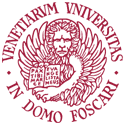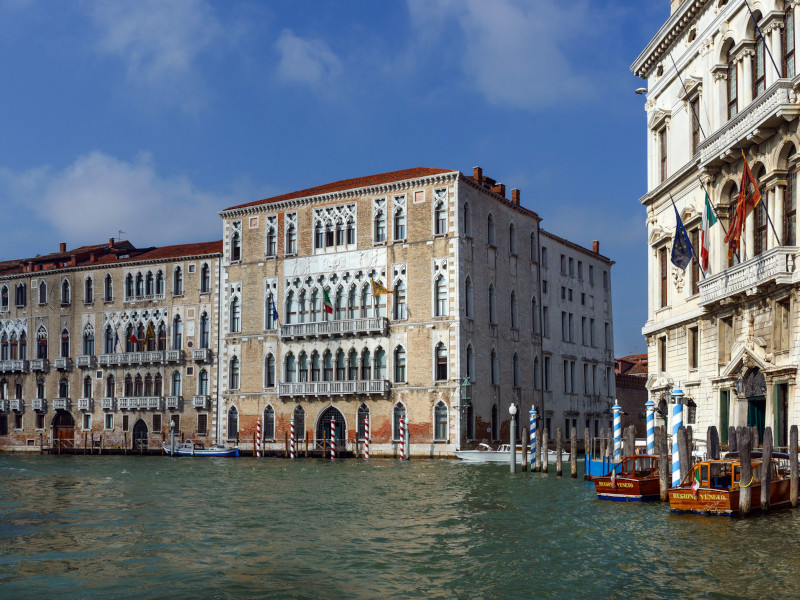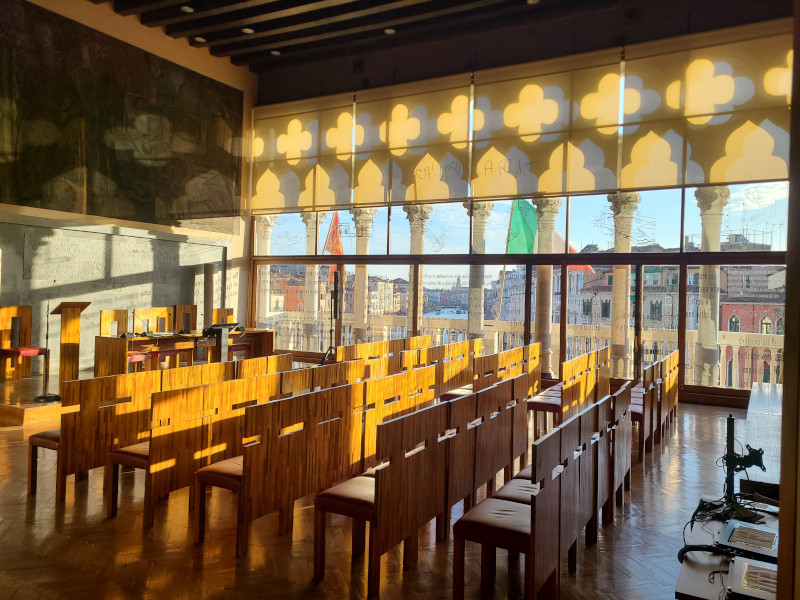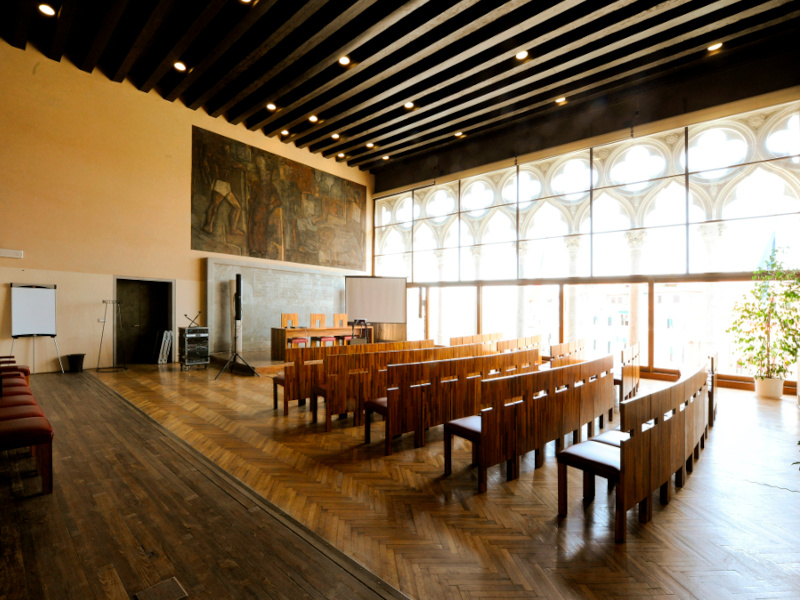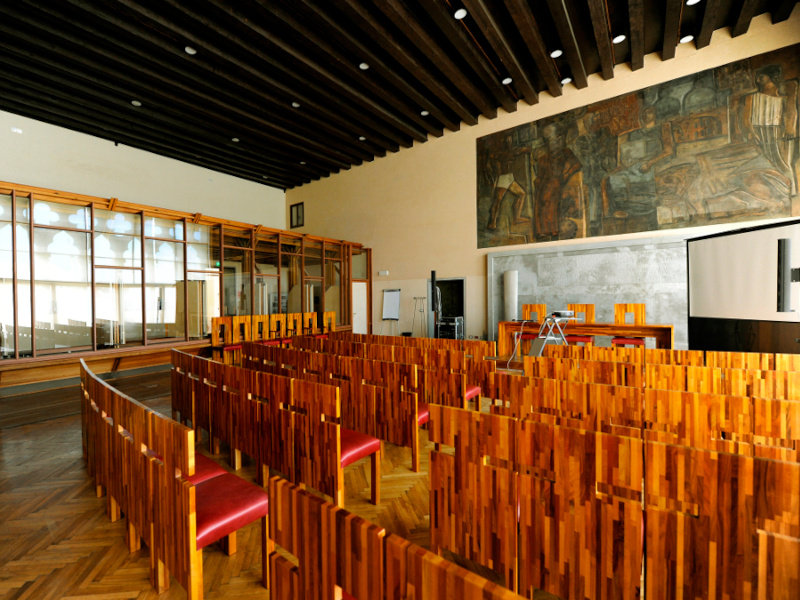Chat Token Vector
Questioning Models of Language and Neo-Structuralism in AI
Symposium, 11-13 June 2025, Venice
Symposium
With the latest developments of AI such as Large Language Models (LLMs), language returns to the center of the stage in critical humanities, history of science and technology, and political economy. Already in the 1990s, political economy advocated for a “linguistic turn” to grasp the transformations of social relations and labour in post-Fordism (Marazzi 1996), but nobody then could foresee the degree of “linguistic automation” that is taking place today through LMMs. Ultimately, in their latent space, LLMs appear to materialise the ‘machine interlingua’ (Liu 2023) that AI practitioners, linguists, and philosophers have envisioned and cultivated since the 1950. As at the times of information theory and cybernetics, a technical paradigm appears to impose a shift in the theoretical discourse. It is urgent, therefore, to investigate the postulates underlying this second ‘linguistic turn’ driven by AI, in which language reemerges at the core of both the technical composition and philosophical concerns.
The symposium Chat Token Vector addresses the new architecture of language, labour, and social relations in what we call AI today. In current AI, language is involved in the making of a complex technosocial scaffolding and a new variant of structuralism. Language is rewritten along the vectors of statistical models in order to become computer-readable. Under this regime of knowledge production, languages but also artefacts such as images become fictitious commodities. The labour that renders these phenomena possible has been, many pointed out, made invisible. Instead of seeing data centres, cable infrastructures, venture capital, and foremost workers cleaning data, maintaining servers, and repairing hardware, we see AI. What are the actual components of the hidden production pipeline of AI? In which way is language represented and mechanised along such a global assembly line?
The format of communication known as Chat has become an interface to access not only AI but also global communication and the labour market. In LLMs, chats orchestrate the new division of labour of the platform economy, in which “work as language” is deconstructed into “microtasks” and all users become “microworkers”. The unit of this formalisation of language is the Token, that grounds the new automation of linguistics and its mobilization for profit (something that French structuralists could not even remotely foresee possible). On AI platforms, atomised individuals talk, unknowingly, to the abyss of the multidimensional space, to the space of the Vector, a novel cultural technique in which collective knowledge and culture collapse into vast statistical manifolds. Given such a complex scaffolding of social and power relations, the symposium invites papers to question the role of language and labour in the new knowledge economy of AI.
Organised by the ERC project AIMODELS at the Department of Philosophy and Cultural Heritage of Ca' Foscari University of Venice.
In partnership with Cambridge Language Sciences: Research Group 'Exploring Novel Figurative Language to Conceptualise Large Language Models' and Cambridge Digital Humanities.
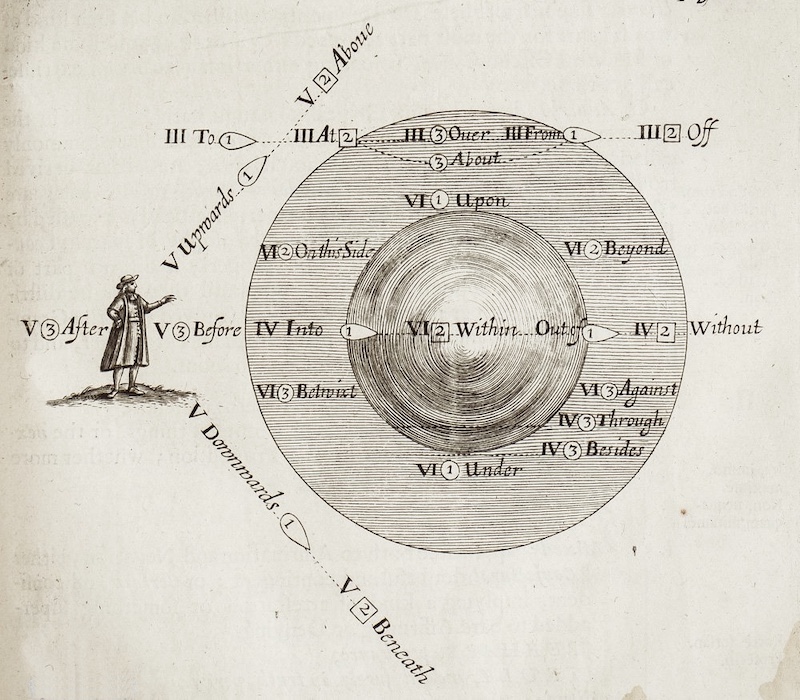
- Arianrhod, Robyn. Vector: A Surprising Story of Space, Time, and Mathematical Transformation. Chicago: University of Chicago Press, 2024.
- Bajohr, Hannes. ‘Dumb Meaning: Machine Learning and Artificial Semantics’ [DEU]. IMAGE 37(1), May 2023: 58-70.
- Caffoni, Paolo. ‘The Resource Debate in Machine Translation and Large Language Models’. In: Handbuch Soziale Praktiken und Digitale Alltagswelten. Wiesbaden: Springer, 2025.
- Dosse, François. History of Structuralism. Vol. 1-The Rising Sign 1945-1966. Minneapolis: University of Minnesota Press, 1997.
- Eco, Umberto. The Search for the Perfect Language. Oxford: Blackwell, 1997.
- Gambetta, Daniele et al. ‘Characterizing Model Collapse in Large Language Models Using Semantic Networks and Next-Token Probability’. arXiv, February 2025.
- Gärdenfors, Peter. The Geometry of Meaning: Semantics Based on Conceptual Spaces. Cambridge: MIT, 2014.
- Gastaldi, Juan Luis. ‘Why Can Computers Understand Natural Language? The Structuralist Image of Language Behind Word Embeddings’. Philosophy and Technology 34(1), 2021: 149-214.
- Grassmann, Hermann. Die Ausdehnungslehre: Vollständig und in Strenger Form Bearbeitet. Cambridge: Cambridge University Press, 2013.
- Harris, Zellig. ‘Distributional Structure’. "WORD" 10(2-3), 1954: 146-62.
- Horning, Rob. ‘Neo-Structuralism’. Substack newsletter. "Internal Exile" (blog), 20 January 2024.
- Impett, Leonardo, and Fabian Offert. Vector Media. London: Meson Press, 2025 forthcoming.
- Jameson, Frederic. The Prison-House of Language. A Critical Account of Structuralism and Russian Formalism. Princeton, NJ: Princeton University Press, 1972.
- Krämer, Sybille. ‘The Cultural Technique of Flattening. An Essay Introducing and at the Same Time Revising an Idea’. Meted 1, 2023.
- Kuzuoğlu, Uluğ. ‘Alphabetic Labor Time: Scripts, Wires, and Brains in the Late Qing’. In: Codes of Modernity, 24-56. New York: Columbia University Press, 2023.
- Lenci, Alessandro, and Magnus Sahlgren. Distributional Semantics. Cambridge: Cambridge University Press, 2023.
- Léon, Jacqueline. Automating Linguistics. History of Computing. Cham: Springer, 2021.
- Liu, Lydia. ‘After Turing: How Philosophy Migrated to the AI Lab’. Critical Inquiry 50(1), 2023: 2-30.
- Liu, Lydia. ‘Wittgenstein in the Machine’. Critical Inquiry 47(3), 2021: 425-55.
- Marazzi, Christian. Capital and Affects: The Politics of the Language Economy. Los Angeles: Semiotext(e), 2011.
- Marazzi, Christian. ‘The Language of Work’. Rivista Italiana di Filosofia del Linguaggio 17(2), 2023.
- Perondi, Luciano. Sinsemie: Scrittura nello spazio. Viterbo: Stampa alternativa, 2012.
- Roberge, Jonathan, and Tom Lebrun. ‘Parrots All the Way Down: Controversies within AI’s Conquest of Language’. In: KI-Realitäten: Modelle, Praktiken und Topologien Maschinellen Lernens", 5:39-66. Bielefeld: Transcript, 2023.
- Rossi-Landi, Ferruccio. Linguistics and Economics. The Hague: Mouton, 1977.
- Schemmel, Matthias. Historical Epistemology of Space: From Primate Cognition to Spacetime Physics. Cham: Springer, 2016.
- Schich, Maximilian. ‘Cultural Analysis Situs’. ART-Dok Eprint, 2019.
- Siegert, Bernhard. Cultural Techniques: Grids, Filters, Doors, and Other Articulations of the Real. New York: Fordham University Press, 2015.
- Warglien, Massimo and Peter Gärdenfors. ‘Semantics, conceptual spaces, and the meeting of minds’. Synthese, 190(12), 2013: 2165–2193.
- Weatherby, Leif. ‘ChatGPT Is an Ideology Machine’. Jacobin blog, 17 April 2023.
Programme
Full programme
|
|
Programme 11-13/06/2025 | 1 MB |
|
|
Book of abstracts | 1 MB |
14.00-14.15
- Matteo Pasquinelli, Ca’ Foscari University of Venice, and Amira Moeding, Cambridge University
“Introduction: Questioning language models before and after AI”
Session 1: Language Models in History (Chair: Amira Moeding)
14.15-15.30 Keynote
- Lydia Liu, Columbia University
“Logos and Pathos in the Calculating Machine”
15.30-15.45 Coffee break
Free catering, Archive hall
15.45-16.45
- Xiaochang Li, Stanford University
“The Crude Force of Computers: Speech Recognition and the Data of Language”
16.45-17.45 Panel
- Ksenia Tatarchenko, Singapore Management University
“Another Collective: The Russian Language Machine Fund (RLMF), or The Last Act of the Soviet Literary Cybernetics” - Justine Zhang, University of Michigan
“Fantasies and histories of effortless interaction”
17.45-18.45
- Leonardo Impett, Cambridge University and Fabian Offert, UCSB
Book pre-launch of “Vector Media: towards a materialist epistemology of Artificial Intelligence” (Meson Press, 2025) introduced by publisher Mercedes Bunz, King’s College
19:00 Social dinner
Open to all but not covered, at Birraria La Corte, San Polo 2168, Venice
Session 2 - Cartographies of the Vector Space (Chair: Matteo Pasquinelli)
9.00-10.00
- Juan Luis (Gianni) Gastaldi, ETH Zurich
"Toward a Critical Formalism: Philosophical and Theoretical Effects of a Mathematical Critique of LLMs"
10.00-11.00
- Tobias Matzner, Paderborn University
"Vector Spaces, Embeddings and the Normalization of Meaning"
11.00-11.15 Coffee break
Free catering, Archive hall
11.15-12.00
- Étienne Grenier, INRS Montreal
"Lost in Vectorization: Where Critical Hermeneutic Meets AI-powered Creative Sectors"
12.00-13.00
- Paolo Caffoni, University of Arts and Design Karlsruhe
"The Predictive Turn of Language: Reading the Future in the Vector Space"
13.00-14.00 Lunch
Free catering, Archive hall
Session 3 - The Political Economy of LLMs (Chair: Matteo Pasquinelli)
14.00-15.00
- Tommaso Guariento, Ca’ Foscari University of Venice
"Ungrounded Speculations. The Vector-grounding Problem between Linguistics and Economics"
15.00-16.00
- Apolline Taillandier, Cambridge University
"The Politics of AI Models: Constructing Selves and Social Orders Through Programming"
16.00-16.15 Coffee break
Free catering, Archive hall
16.15-17.45 Panel
- Nina Markl, University of Essex
"Managing Language, Work & Language Work" - Marvin Tritschler, University of Stuttgart
"The Life of the Sign and Its Interchangeability Through Automation" - Mikael Brunila, McGill University Montreal
"Cosine capital: Large language models and the embedding of all things"
17.45-18.45
- Hannes Bajohr, Berkeley University
"The Latent Space of Meaning and the Novel: World Models in AI and Literature"
Session 4 - The Philosophy of Language Automation (Chair: Tommaso Guariento)
9.00-10.00
- Jonnie Penn and Yaqub Chaudhary, Cambridge University
"New Parameters of Power: On LLM-based Manipulation and Control and the Specter of Strategic AI"
10.00-10.15 Coffee break
Free catering, Archive hall
10.15-12.00 Panel
- Anna Luhn, Freie Universität Berlin
"A Matter of Disruption, a Case for Preservation: Literary Powerplay In/Against an AI Paradigm of Language" - David Bering-Porter, The New School, New York
"Large Language and Models of the Other: A Semiotics of the Token" - Alessandro Trevisan, Cambridge University
"Forms of Life: An Applied Investigation of LLMs through the Lens of Philosophy of Language "
12.00-13.00
- Ann Copestake, Cambridge University
"Meaning and Metaphor: Making sense of LLMs"
13.00-14.00 Lunch
Free catering, Archive hall
Session 5 - Humanities after Tokenization (Chair: Amira Moeding)
14.00-15.30 Panel
- Pierre Schwarzer, New York University
"Language, Liquidated" - Aditya Nayak, Aditi Vashistha and Aakash Gautam, University of Pittsburgh
"The Birth of Synthetic Agents: From ‘World as Language’ to ‘Agency as Language’" - Luz Horne, Universidad de San Andrés
"What is not Language in Language. Literature as a Laboratory of Philosophical Anthropology in the context of LLMs"
15.30-15.45 Coffee break
Free catering, Archive hall
15.45-16.45
- Kameelah Janan Rasheed, Yale University
"Zombie Language: Reflections on Current Research in Deathbots, Griefbots, Digital Doppelgängers, and the Afterlives of Language"
16.45-17.30 Final discussion
17.30-18.30 Toast
Free drinks and Venetian cicchetti, Archive hall
Lectures
- Lydia Liu - “Logos and Pathos in the Calculating Machine”
- Juan Luis (Gianni) Gastaldi - "Toward a Critical Formalism: Philosophical and Theoretical Effects of a Mathematical Critique of LLMs"
- Paolo Caffoni - "The Predictive Turn of Language: Reading the Future in the Vector Space"
- Tommaso Guariento - "Ungrounded Speculations. The Vector-grounding Problem between Linguistics and Economics"
- Nina Markl - "Managing Language, Work & Language Work"
- Mikael Brunila - "Cosine capital: Large language models and the embedding of all things"
- Hannes Bajohr - "The Latent Space of Meaning and the Novel: World Models in AI and Literature"
- Jonnie Penn and Yaqub Chaudhary - "New Parameters of Power: On LLM-based Manipulation and Control and the Specter of Strategic AI"
- Ann Copestake - "Meaning and Metaphor: Making sense of LLMs"
- Kameelah Janan Rasheed - "Zombie Language: Reflections on Current Research in Deathbots, Griefbots, Digital Doppelgängers, and the Afterlives of Language"
Team
- Matteo Pasquinelli, Ca’ Foscari University of Venice
- Tommaso Guariento, Ca’ Foscari University of Venice
- Amira Moeding, Cambridge University
- Francesca Carta, Ca’ Foscari University of Venice
- Giorgio Ciani, Ca’ Foscari University of Venice
- Lorenzo De Lellis, Ca’ Foscari University of Venice
